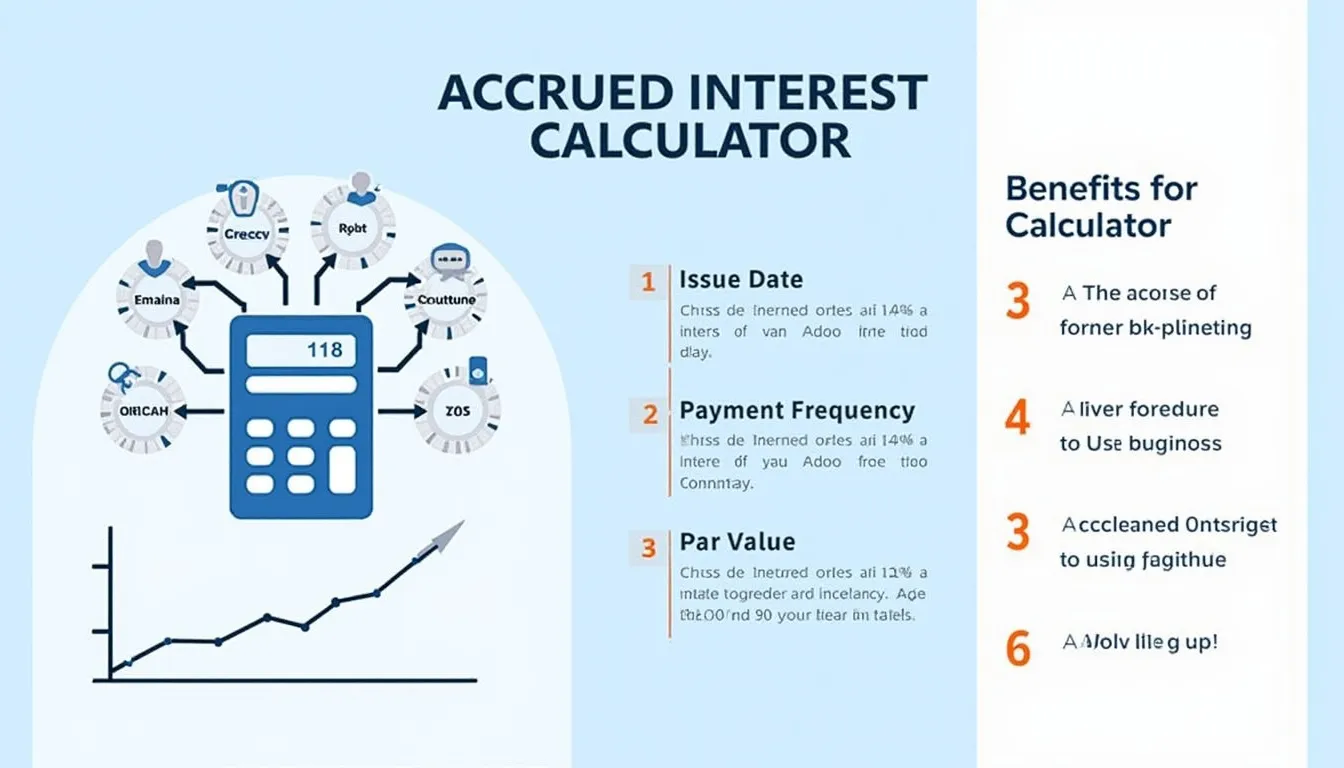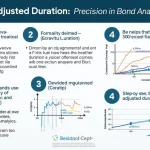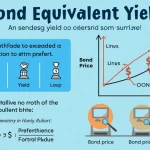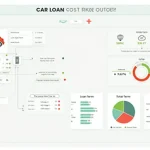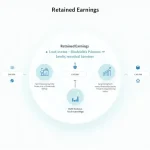Accrued Interest Calculator
Is this tool helpful?
How to use the tool
- Issue Date
Pick the bond’s start date. Examples: 12 Apr 2021, 30 Aug 2022. - Settlement Date
Select the trade or valuation date. Examples: 07 Nov 2023, 18 Jan 2024. - Interest Rate (%)
Input the annual coupon rate. Examples: 3.85, 7.10. - Par Value (USD)
Enter face value. Examples: 2 000, 50 000. - Payment Frequency
Choose 1, 2, 4, or 12 coupons per year. Examples: Quarterly (4), Monthly (12). - Day-Count Basis
Select the convention: 30/360, Actual/Actual, Actual/360, Actual/365, 30E/360. Examples: Actual/360, 30E/360. - Calculate
Press “Calculate” to see accrued interest instantly.
Formula applied
For each coupon period the script uses
$$ \text{Accrued} = \text{Par} \times \text{Rate} \times rac{\text{Days\,between\,Issue\,and\,Settlement}}{\text{Days in Year} \times \text{Frequency}} $$“Days in Year” equals 360, 365, or 366 depending on the chosen basis.
Example calculation
- Issue Date: 01 Mar 2023
- Settlement Date: 20 Jun 2023
- Rate: 5 %
- Par: 10 000 USD
- Frequency: Semi-annual (2)
- Basis: 30/360
Days accrued (30/360): 109.
Days in Year: 360.
Accrued interest:
Quick-Facts
- Semi-annual coupons are standard for U.S. Treasuries (TreasuryDirect FAQ, 2023).
- 30/360 convention assumes each month has 30 days, simplifying settlement math (ICMA Rule 251, 2021).
- Accrued interest must be added to bond price under FINRA Rule 2265 (FINRA, 2022).
- The IRS taxes interest in the year earned, not received (IRS Pub 550, 2022).
FAQs
What does the calculator return?
It outputs the dollar interest earned from the last coupon date up to your settlement date, ensuring fair trade pricing (MSRB, 2021).
Which day-count basis should I choose?
Use 30/360 for corporate bonds, Actual/Actual for Treasuries, Actual/365 for money-market issues (ICMA, 2021).
How does payment frequency change the result?
More coupon periods divide annual interest into smaller slices, lowering the accrued amount per period yet keeping annual totals equal (Fabozzi, 2020).
Can I analyse zero-coupon bonds?
The tool returns zero because coupons are absent; price changes, not accrued interest, drive returns (Hull, 2022).
Why must settlement follow the issue date?
Interest cannot accrue before issuance; trades settling earlier would create negative time, violating bond math (FINRA, 2022).
Does accrued interest affect yield?
Yield calculations back out accrued interest, so quoted yields remain comparable across settlement dates (S&P Global, 2023).
Is accrued interest tax-deductible?
Buyers may deduct the amount paid for accrued interest from taxable interest received at the next coupon (IRS Pub 550, 2022).
How precise is Actual/Actual?
Actual/Actual uses real day counts and leap-year adjustments, giving sub-basis-point accuracy for long-dated issues (ICMA, 2021).
Important Disclaimer
The calculations, results, and content provided by our tools are not guaranteed to be accurate, complete, or reliable. Users are responsible for verifying and interpreting the results. Our content and tools may contain errors, biases, or inconsistencies. We reserve the right to save inputs and outputs from our tools for the purposes of error debugging, bias identification, and performance improvement. External companies providing AI models used in our tools may also save and process data in accordance with their own policies. By using our tools, you consent to this data collection and processing. We reserve the right to limit the usage of our tools based on current usability factors. By using our tools, you acknowledge that you have read, understood, and agreed to this disclaimer. You accept the inherent risks and limitations associated with the use of our tools and services.
